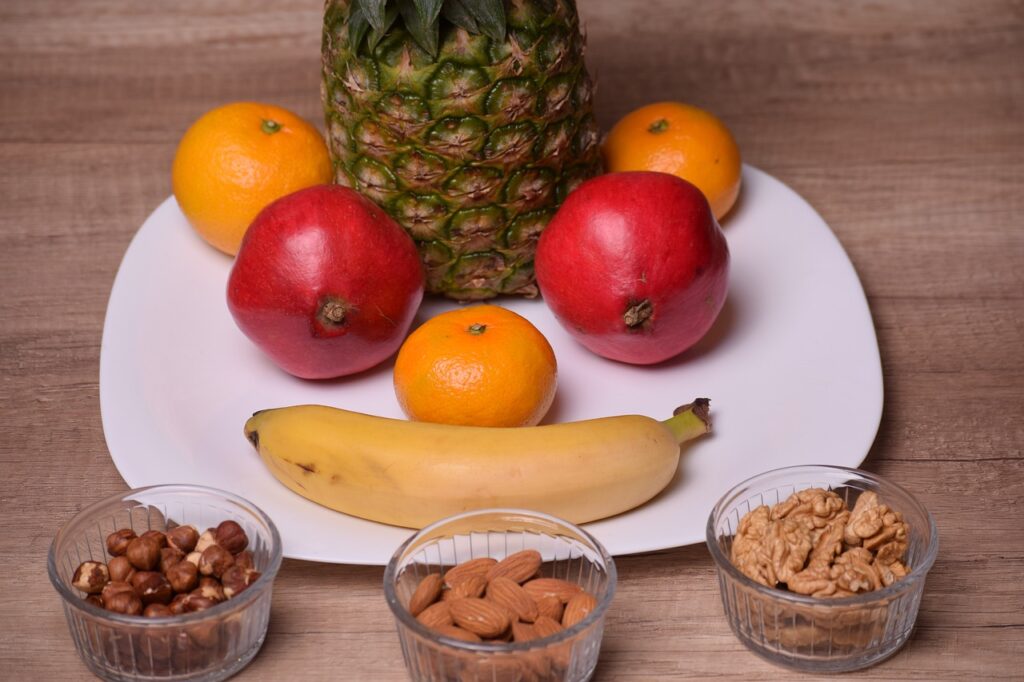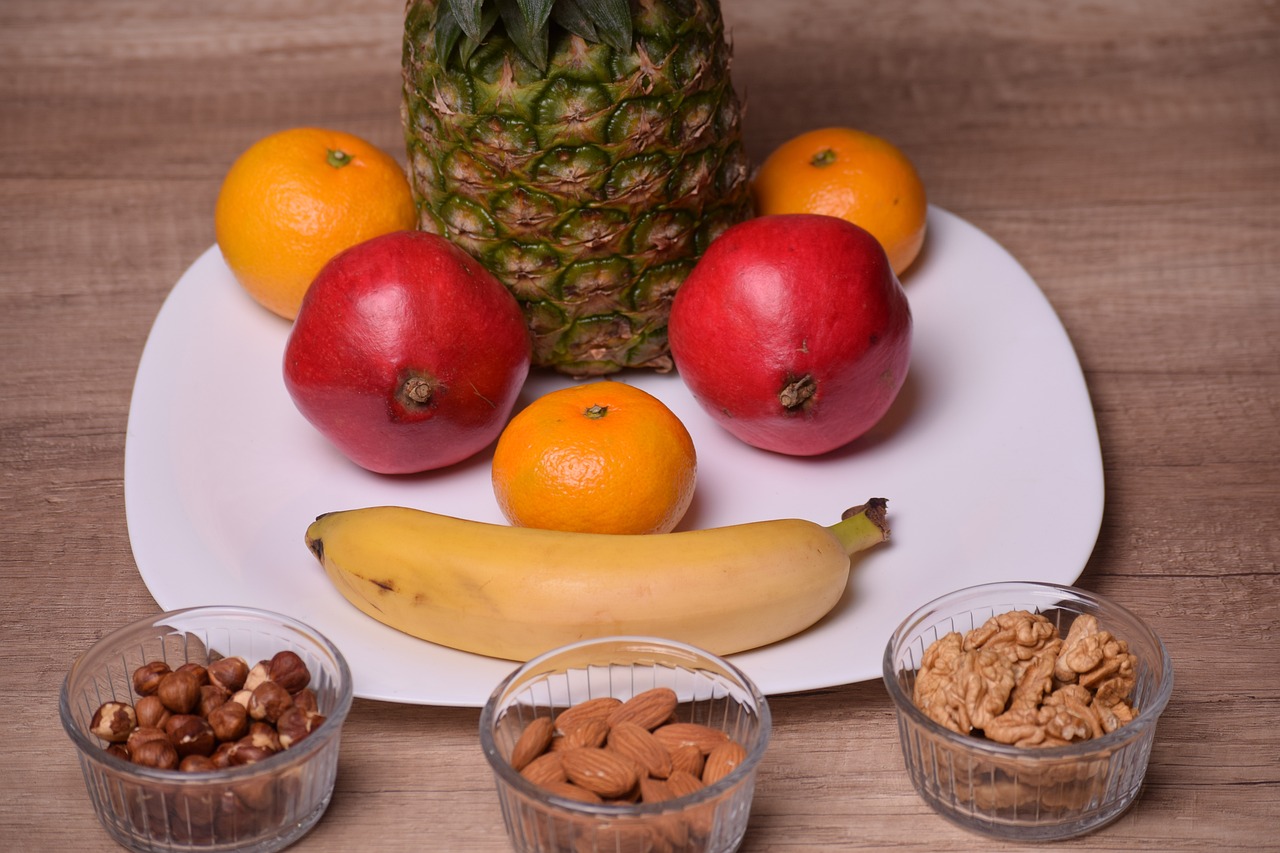10 Winter Superfoods for weight Loss:
When winter starts, many people feel low energy, lethargic, unhealthy food cravings, craving comfort foods and struggling to maintain energy levels and manage weight. However, winter can also be a perfect season to reset your diet with nutrient dense winter superfoods, that keep you full energized and healthy. Incorporating these 10 winter Superfoods into your daily routine can help boost metabolism, burn fat and provide sustainable energy without unnecessary calories. Here’s a detailed look at 10 winter Superfoods that will help you to stay fit, energized and on track with your weight loss goals.

Sweet Potatoes:
Sweet potatoes are rich in dietary fiber, vitamins A, C, potassium and antioxidants (beta-carotene). They have a natural sweet flavor, but a low glycemic index, which prevents sudden spikes in blood sugar and improve satiety. Fiber in sweet potatoes increases satiety, reduce overeating and calorie intake. Because of complex carbohydrates, slow-release energy helps sustain blood sugar levels, preventing energy dips and cravings. Fiber supports healthy gut bacteria, promoting metabolism and digestion. Include steamed or roasted sweet potatoes into your daily routine in winter.
Spinach:
Spinach is the best among 10 winter superfoods. Spinach is extremely low in calories, but in high in fiber, rich in antioxidants (Lutein and Flavonoids), and good source of vitamins A, C, K and minerals, Iron, Potassium and Magnesium. Spinach is low in calorie; that’s why large quantities can be consumed without weight gain. Because of fiber in spinach helps reduce appetite and overeating. Fiber in spinach supports a healthy digestive system and prevents bloating.
But keep in mind one thing about spinach, raw spinach should not be consumed, because raw spinach contains Oxalates, may produce kidney stones and irritate your thyroid gland. Cooked or blanch spinach is very beneficial for weight loss and maintain energy levels. Incorporate spinach soup, sabji, paratha, Chilla into your daily routine in winter.
Cauliflower:
Cauliflower is a highly versatile among 10 winter superfoods. It is low in calorie, 90% water, which helps maintain hydration- a key factor to energy production and reduce cravings and 10% fiber rich vegetable. It is good source of vitamin C, K, folate, manganese, choline. cauliflower is also rich in antioxidants (glucosinolates, isothiocyanates). Cauliflower allows you to consume large portions without exceeding your calorie budget. It is rich in dietary fiber, which slows digestion and promotes a feeling of fullness.
Fiber in cauliflower regulates hunger hormone like ghrelin, reducing unnecessary snacking or overeating. Cauliflower contains choline, a nutrient that supports fat metabolism and prevents fat accumulation in the liver. Glucosinolates and isothiocyanates, antioxidants found in cauliflower help reduce inflammation and improve metabolic efficiency. Cauliflower contains low amount of complex carbohydrates that release energy slowly helping maintain stable energy levels throughout the day. Incorporate cauliflower rice, roasted or sauteed cauliflower salad and gobi ka paratha into your routine in winter.
Cabbage:
Cabbage is a powerful cruciferous vegetable among 10 winter superfoods. It is low in calories and rich in essential nutrients like vitamin C, K, Folate and potassium. Cabbage provides fiber, antioxidants (Glucosinolates) and 90% water making it an ideal food for those looking to lose weight and maintaining optimal energy levels in winter. Cauliflower is low in calorie, high in fiber and water content adds bulk to meals, increasing satiety and preventing overeating. Fiber in cabbage helps promote a feeling of fullness, slow digestion, regulates hunger hormones like ghrelin, reducing frequent unnecessary snacks cravings.
Improved digestion from fiber in cabbage intake prevents bloating and constipation, which are common issues during winter. Cabbage contains glucosinolates that support liver detoxification by breaking down toxins in the body. Detoxifying in the liver improves metabolism and enhances the body’s ability to burn fat effectively. It has low glycemic index helps stabilize blood sugar levels, preventing sudden spikes and crashes that can lead to cravings for sugary or high calorie foods. Balanced blood sugar by consuming cabbage promotes steady energy levels and prevents overeating due to fluctuating hunger.
Cabbage provides approximately 36 mg of vitamin C per 100 gms, meeting nearly 40% of the daily requirement. Vitamin C is essential for energy production as it helps in the absorption of iron, a key nutrient that helps oxygenated tissues and reduce fatigue. During winter, vitamin C in cabbage boosts immunity, produce energy and lose weight. Incorporate cabbage soup, sautéed cabbage with Ginger, garlic and olive oil, fermented cabbage (sauerkraut) and cabbage salad with carrots, spinach and lemon into your routine in winter.
Strawberries:
Strawberries are most powerful to maintain weight and boost energy among 10 winter superfoods. Strawberries are low in calories, rich in vitamin C, manganese, folate, potassium, antioxidants (anthocyanins, ellagic acid and flavonoids), fiber and water- which highly beneficial for supporting weight loss and enhancing energy levels during winter. Their natural sweetness makes them a perfect substitute for sugary snacks and satisfying cravings.
Strawberries contain only 32 calories per 100 gms, making them a low-calorie food that you can enjoy guilt-free in larger portions. Strawberries provide 2 gms of fiber per 100 grammes, which supports satiety by slowing digestion and reducing overall calorie intake. Dietary fiber helps regulate hunger hormones, reduce appetite and minimizing cravings. They contain antioxidants that reduce inflammation by combating oxidative stress in our body. They also provide vitamin C, which supports fat oxidation, fat metabolism and reduce fat storage. Incorporate fresh Strawberries, Strawberry smoothies and shake, strawberry salads with leafy greens with nuts and strawberry chia pudding into your routine during winter.
Indian Gooseberry (Amla):
Indian Gooseberry or Amla is most effective to maintain weight, boost energy and immunity, enhance digestion and metabolism, strengthens bone and joint, improved your skin and hair health among 10 winter super foods. Amla is rich in soluble fiber, which promotes satiety and reducing hunger pangs and preventing overeating. Antioxidants content in Amla, reduces inflammation by reducing oxidative stress in our body.
Amla enhances metabolism due to its high vitamin C content, which supports fat oxidation and energy production. It regulates bowel movements, preventing bloating and improves gut health. Amla is naturally low in calories, making it an ideal snake for those looking to lose extra kilos. Amla’s chromium content helps regular blood sugar levels, preventing fat storage and reduce sugar cravings. Incorporate fresh amla, amla juice, raw amla, amla chutney, and Amla Murabba, or Amla pickle into your routine during winter.
ABC juice (Apple, Beetroot, Carrot):
ABC juice (Apple, Beetroot, carrots) is an excellent choice for promoting weight loss and enhancing energy levels among 10 winter superfoods. Apple is rich in fiber, antioxidants and natural sugars, provide energy while keeping you satiated. Beetroot packed with nitrates, iron and antioxidants, boosts stamina and supports blood flow. Carrot is high in beta carotene, vitamin A and C and fiber, improve digestion and immunity. Incorporate a pinch of cinnamon or turmeric for added warmth and anti-inflammatory benefits.
These three-foods are low in calories but nutrient-dense, ideal for those on a calorie restricted diet. They enhance metabolic activity, helping the body burn calories more efficiently. High fiber content in these three foods promote gut health, prevent constipation and reduce bloating, aiding weight management. Beetroot acts as a natural detoxifier, supporting liver function and eliminating toxins that may help in weight loss. The juice’s, fiber and natural sweetness reduce cravings and preventing overeating. Incorporate this juice in morning or in evening into your routine during winter.
Pearl Millet (Bajra):
Pearl Millet or Bajra is a highly nutritious grain for weight management, boosting energy and providing a sense of warmth among 10 winter superfoods. Bajra is rich in fiber, protein, Iron, Magnesium and Vitamin B complex. It has low glycemic index and can be include in complex carbohydrates. Pearl millet or Bajra is loaded with dietary fiber, enhances satiety and prevents overeating. It releases energy slowly, keeping blood sugar level stable and reducing the likelihood of fat storage.
Bajra improves gut health by promoting regular bowel movements and preventing bloating, common in winter. Its high protein content helps in building lean muscle mass, which increases the body’s basal metabolic rate (BMR). Its high iron content improves hemoglobin levels, ensuring better oxygen delivery and combating winter fatigue. Bajra contains niacin and other B vitamins that convert food into energy, keeping you active throughout the day. Magnesium in Bajra, supports vascular health, improving circulation and keeping the body warm. Palm Millet or Bajra is considered a warming food in Ayurveda, helping maintain body heat and combat winter chills. Incorporate Bajra roti, or Bajra khichdi, or Bajra porridge or Bajra soup into your daily routine during winter.
Sesame seeds:
Sesame seeds or Til in Ayurveda, are an excellent food choice for weight loss and energy enhancement among 10 winter superfoods. Sesame seeds are rich in healthy fats (monounsaturated and polyunsaturated), protein, fiber, vitamins and minerals (calcium, magnesium, zinc and iron). Healthy fats in sesame seeds support metabolism and provide sustainable energy. High plant-based protein in sesame seeds, adding in muscle repair and satiety. Fiber in sesame seeds promotes digestive health and prevents overeating by keeping you full longer. Excellent source of B complex vitamins boost energy and strengthen immunity.
Sesame seeds contain lignans, such as sesamin, which supports fat metabolism and prevent fat accumulation. The fiber content in sesame seeds help regulate hunger hormones and reduce calorie intake. sesame seeds enhance digestive health by prevent bloating and constipation, which can indirectly support weight loss. These seeds rich in iron and magnesium, which improve oxygen delivery to cells and reduce fatigue. Incorporate roasted sesame seeds, sesame seeds chikki or ladoo or sesame oil into your routine during winter.
Mustard Greens (Sarson ka saag):
Mustard Greens (Sarson ka saag) is a winter favorite Indian cuisine, are packed with fiber, vitamin A, C, iron, folate, antioxidants (glucosinolates) and hold immense benefits for weight management and energy enhancement among 10 winter superfoods. Mustard greens is low in calories (100 gm serving has only about 27 calories), making it an excellent choice for weight management. Fiber in mustard greens promotes satiety, enhance digestion and regulates blood sugar levels. Antioxidants in mustard grains combat oxidative stress by reducing inflammation in our body. Glucosinolate compound in mustard greens that enhance detoxification and fat metabolism. Because of iron and Folate in mustard greens, boost energy levels by improving red blood cell production and oxygen delivery.
Vitamin C content in mustard greens enhance iron absorption and support immunity, keeping energy levels stable. According to Ayurveda, mustard greens have a slightly warming property, helping to balance VATA dosha and keep the body energized in cold weather. Incorporate sarson ka saag combined with spinach and Makki Ki Roti or saute mustard greens with garlic, ginger and sesame oil or include mustard greens in winter vegetable soups for added fiber and warmth.
Conclusion:
Winter is the perfect season to focus on nutrient-dense superfoods that not only keep you warm, but also boost energy, immunity and overall health. These 10 winter superfoods are rich in antioxidants, fiber, vitamins, minerals, help combat oxidative stress by reducing inflammation, improve digestion, enhance metabolism, boost energy and immunity and promote weight management.
These winter Superfoods are often seasonal offering the best of Nature’s reward when your body needs them most. Their warming properties, as understood in Ayurveda, aligned with winter’s needs, balancing Vata and Kapha doshas. Incorporating these 10 winter superfoods into your daily diet supports a stronger immune system, enhanced energy levels and a healthier body composition. By mindfully adding these winter superfoods, you can develop vibrant health and sustained energy during winter. To know more, visit my Instagram page.


Leave a Comment